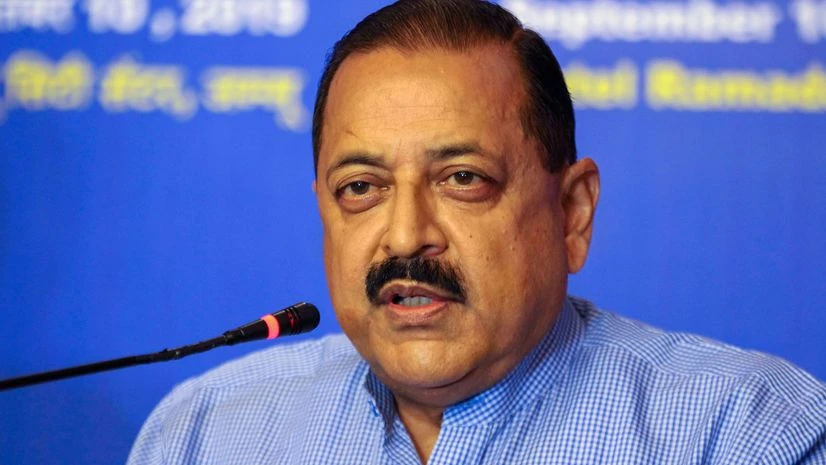Union Minister Jitendra Singh has emphasized the synchronicity between India's G20 Presidency and the nation's illustrious accomplishments in space exploration.
Speaking ahead of the G20 Summit in New Delhi, Singh remarked that "G20 Summit is happening in India at a time when Prime Minister Narendra Modi has emerged as the tallest leader of the world".
"The Summit is taking place at a time when India's flag is flying on the South Pole of Moon, the first time any spacecraft has landed on the farther side of the Moon, and the nation's achievements in Science and Technology, including the pioneering R & D success story in Covid vaccines, are being hailed across the globe", said Singh.
He underscored that this significant global event coincides with India's achievements in the field of space and technology.
Singh also highlighted India's noteworthy advancements in science and technology, including the pivotal role it played in the development of COVID-19 vaccines, which garnered recognition and praise worldwide, read the Department of Space press release.
Also Read
The theme of the G20 Summit, "Vasudeva Kutumbakam," which translates to "One Earth, One Family, One Future," resonates with India's commitment to global unity and cooperation, read the press release.
Dr Singh stressed that India is prepared to take a leadership role on multiple fronts, including space exploration, and emphasized the necessity of international collaboration for future scientific endeavours.
India's space program has made significant strides, placing it on par with the world's leading space agencies. While NASA was the first to land on the Moon, India's Chandrayaan-1 mission detected potential evidence of water molecules on the lunar surface, read the press release.
"Chandrayaan is being looked up by the entire scientific community across the globe because they expect some new inferences being gathered from there, most from Chandrayaan-3 because it's gone into a virgin area. So obviously, the inputs, inferences that would be forthcoming from there would be of utility to all the other Space agencies as well for their future projects and planning," said Singh.
Singh highlighted that recent agreements between India and the United States, including the Artemis Accords and joint expeditions to the International Space Station, demonstrate the pivotal role technology plays in international relations. India's successful launch of foreign satellites has also contributed significantly to its space economy, read the press release.
India's space sector is rapidly expanding, with the nation's overall space economy currently estimated at $8 billion, equivalent to 2 per cent of the global market share. However, projections suggest substantial growth, with estimates reaching USD40 billion by 2040 and the Arthur D Little Report proposing a USD100 billion valuation by the same year.
"India's overall Space economy today stands at about USD8 billion, viz 2 per cent of the global (market share) but the entire world is recognizing increased pace and that's why the conservative projections are USD40 billion by 2040, but later we had the ADL (Arthur D Little) Report, which has projected India's Space economy to grow up to USD100 Billion by 2040", said Singh.
"So we've started moving very fast, we are still conservative in our evaluation of ourselves, but the others' assessment is much, much more, which means that we have indeed arrived," he said.
Space applications have permeated numerous sectors in India, from smart city projects and railway management to telemedicine and governance, read the release.
The nation's disaster capabilities have also reached world-class standards during Prime Minister Modi's tenure, with space research contributing significantly to disaster forecasting and management.
As India hosts the G20 Summit, it is not only demonstrating its leadership in global diplomacy but also its remarkable achievements in space exploration and technology, reaffirming its commitment to a collaborative and technology-driven future.
(Only the headline and picture of this report may have been reworked by the Business Standard staff; the rest of the content is auto-generated from a syndicated feed.)

)
